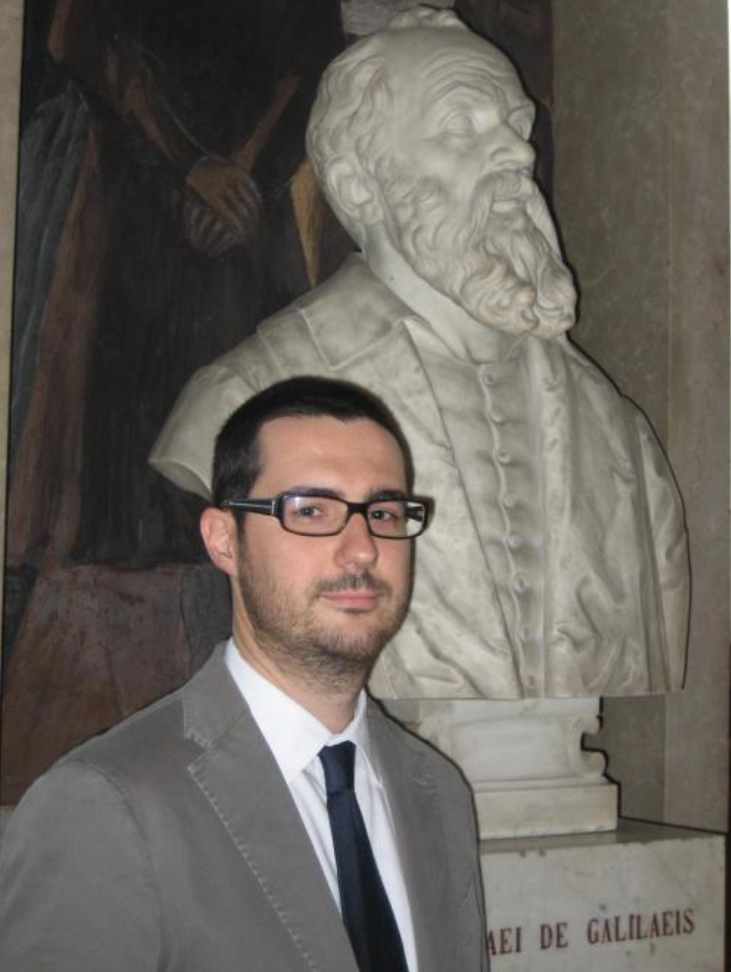 In conjunction with the IEEE
International Parallel and Distributed Processing Symposium
In conjunction with the IEEE
International Parallel and Distributed Processing Symposium
Announcements:
- All HiCOMB Attendees: The HiCOMB'21
event is FREE but please register by filling out this
form to receive the Zoom link info. (registration
time has now elapsed)
- All IPDPS'21 registered attendees should automatically be able to
access the workshop's Zoom link from within the conference' Virtual
Platform.
- HiCOMB '21 Advance
Program
- Online HiCOMB Proceedings
- Keynote and Invited Speakers details announced (see below).
- Paper deadline extended to February 5th (firm deadline).
- The Call
for Papers for HiCOMB'21 is now available.
Confirmed Keynote and Invited Speakers
Keynote Speaker:
 Kathy Yelick
Kathy Yelick
Robert S. Pepper Distinguished Professor of EECS
Associate Dean of Research, Division of Computing, Data Science, and
Society
University of California Berkeley
Senior Advisor on Computing
Lawrence Berkeley National Laboratory
Berkeley, CA, USA
Title: Genomic Analysis at Scale: Mapping Irregular
Computations to Advanced Architectures
Abstract: Genomic data sets are growing
dramatically as the cost of sequencing continues to decline and community
databases are built to store and share this data with the research
community. Some of data analysis problems require large scale
computational platforms to meet both the memory and computational
requirements of these data sets. These applications differ from scientific
simulations that dominate the workload on high end parallel systems today
and place different requirements on programming support, software
libraries, and parallel architectural design. The tools in common use
often run only on shared memory machines and on distributed memory they
involve irregular communication patterns such as asynchronous updates to
shared data structures. The ExaBiome project at Berkeley Lab is developing
high performance tools for analyzing microbial data. I will give an
overview of several high-performance genomic analysis problems, including
alignment, profiling, clustering, and assembly, and describe some of the
challenges and opportunities of mapping these to current petascale and
future exascale architectures. I will also describe some of the common
computational patterns or “motifs” that inform parallelization strategies
and can be useful in understanding architectural requirements, algorithmic
approaches, and benchmarking of current and future systems.
Biography: Dr. Kathy Yelick is the Robert S. Pepper
Distinguished Professor of Electrical Engineering and Computer Science,
and the Associate Dean for Research in the Division of Computing, Data
Science and Society at UC Berkeley. She is also the Senior Advisor on
Computing at LBNL. Her research is in high performance computing,
programming languages, compilers, parallel algorithms, and automatic
performance tuning. She currently leads the ExaBiome project on scalable
tools for analyzing microbial data and co-leads the Berkeley Benchmarking
and Optimization (Bebop) group. Dr. Yelick served as the Associate Lab
Director for Computing Sciences at LBNL from 2010 through 2019, and prior
to that lead NERSC. Dr. Yelick is a member of the National Academy
of Engineering and the American Academy of Arts and Sciences. She is a
Fellow of both the ACM and AAAS.
HiCOMB 2021 Call For Papers
The size and complexity of genomic and biomedical big data continue to
grow at a furious pace, and the analysis of these complex, noisy, data
sets demands efficient algorithms and high performance computing
architectures. Hence, high-performance computing (HPC) has become
an integral part of research and development in bioinformatics,
computational biology, and medical and health informatics. The goal of
the HiCOMB workshop is to showcase novel HPC research and technologies
to solve data- and compute-intensive problems arising from all areas of
computational life sciences. The workshop will feature contributed
papers as well as invited talks from reputed researchers in the field.
For peer-reviewed papers, we invite authors to submit original and
previously unpublished work that are at the intersection of
the "pillars" of modern day computational life sciences and HPC.
More specifically, we encourage submissions from all areas of biology
that can benefit from HPC, and from all areas of HPC that need new
development to address the class of computational problems that
originate from biology.
Areas of interest within computational life sciences include (but not
limited to):
- Biological sequence analysis (genome assembly, long/short read
data structures, read mapping, clustering, variant analysis, error
correction, genome annotation)
- Computational structural biology (protein structure, RNA
structure)
- Functional genomics (transcriptomics, RNAseq/microarrays, single
cell analysis, proteomics, phospho-proteomics)
- Systems biology and networks (biological network analysis, gene
regulatory networks, metabolomics, molecular pathways)
- Tools for integrated multi-omics and biological databases (network
construction, modeling, link inference)
- Computational modeling and simulation of biological systems
(molecular dynamics, protein structure/docking, dynamic models)
- Phylogeny (phylogenetic tree reconstruction, molecular evolution)
- Microbes and microbiomes (taxonomical binning, metagenomics,
classification, clustering, annotation)
- Biomedical health analytics and biomedical imaging (electronic
health records, precision medicine, image analysis)
- Biomedical literature mining (text mining, ontology, natural
language processing)
- Computational epidemiology (infectious diseases, diffusion
mechanisms)
- Phenomics and precision agriculture (IoT technologies, feature
extraction)
- Visualization of large-scale biomedical data and patient
trajectories
Areas of interest within HPC include (but are not limited to):
- Parallel and distributed algorithms (scalable machine learning,
parallel graph/sequence analytics, combinatorial pattern matching,
optimization, parallel data structures, compression)
- Data-intensive computing techniques
(communication-avoiding/synchronization-reducing techniques,
locality-preserving techniques, big data streaming techniques)
- Parallel architectures (multicore, manycore, CPU/GPU, FPGA,
system-on-chip, hardware accelerators, energy-aware architectures,
hardware/software co-design)
- Memory and storage technologies (processing-in-memory, NVRAM,
burst buffers, 3D RAM, parallel/distributed I/O)
- Parallel programming models (libraries, domain specific languages,
compiler/runtime systems)
- Scientific workflows (data management, data wrangling, automated
workflows, productivity)
- Scientific computing (numerical analysis, optimization)
- Empirical evaluations (performance modeling, case-studies)
Submission guidelines
To submit a paper, please upload a PDF file through the Linklings
HiCOMB 2021 submission link:
https://ssl.linklings.net/conferences/ipdps/?page=Submit&id=HiCOMBWorkshopFullSubmission&site=ipdps2021
IPDPS
workshops can have submission in three categories: regular papers (up
to 10 pages), short papers (up to 4 pages), and extended abstracts (1
page). Submitted manuscripts may not exceed ten (10) single-spaced
double-column pages using a 10-point size font on 8.5x11 inch pages
(IEEE conference style), including figures, tables, and references
(see IPDPS
Call for Papers for more details). All papers will be reviewed
by three or more referees. This year, the authors of the accepted
papers will be given a choice on whether to have the paper appear in
the IPDPSW Proceedings (which will be digitally indexed and archived
as part of the IEEE Xplore Digital Library). If the authors choose not
to make it part of the proceedings, then the paper will not
be considered archival. In either case, all accepted papers
will be posted online on the workshop website, and all accepted papers
(archived or not) will need to have an oral presentation at the
workshop by one of the authors of the paper.
Important Dates
Workshop
submission deadline
(for all categories):
|
January 29, 2021
February 5, 2021 by 11:59pm AoE (extended deadline)
|
| Author notification: |
February 28, 2021 |
| Final camera-ready papers deadline: |
March 12, 2021 |
| Workshop: |
May 17, 2021 |
Program Committee
Mohammed Alser, ETH Zurich
Ariful Azad, Indiana University
Mukul Bansal, University of Connecticut
Aydin Buluc, Lawrence Berkeley National Laboratory; University of
California, Berkeley
Somali Chaterji, Purdue University
Rayan Chikhi, Institut Pasteur
Ercument Cicek, Bilkent University
Saliya Ekanayake, Virginia Tech
Attila Gursoy, Koc University
Daisuke Kihara, Purdue University
Penporn Koanantakool, Google
Georgios Kollias, IBM T.J. Watson Research Center
Johannes Langguth, Simula Research Laboratory
Erin Molloy, University of California, Los Angeles
Gaurav Pandey, Icahn School of Medicine at Mount Sinai
Enzo Rucci, National University of La Plata
Matt Ruffalo, Carnegie Mellon University
Bertil Schmidt, Johannes Gutenberg University Mainz
Michela Taufer, University of Tennessee Knoxville
Sharma Thankachan, University of Central Florida
Fabio Vandin, University of Padova
Jaroslaw Zola, University at Buffalo
Program Chair
General Chairs
Steering Committee Members
HiCOMB Archive
 In conjunction with the IEEE
International Parallel and Distributed Processing Symposium
In conjunction with the IEEE
International Parallel and Distributed Processing Symposium


